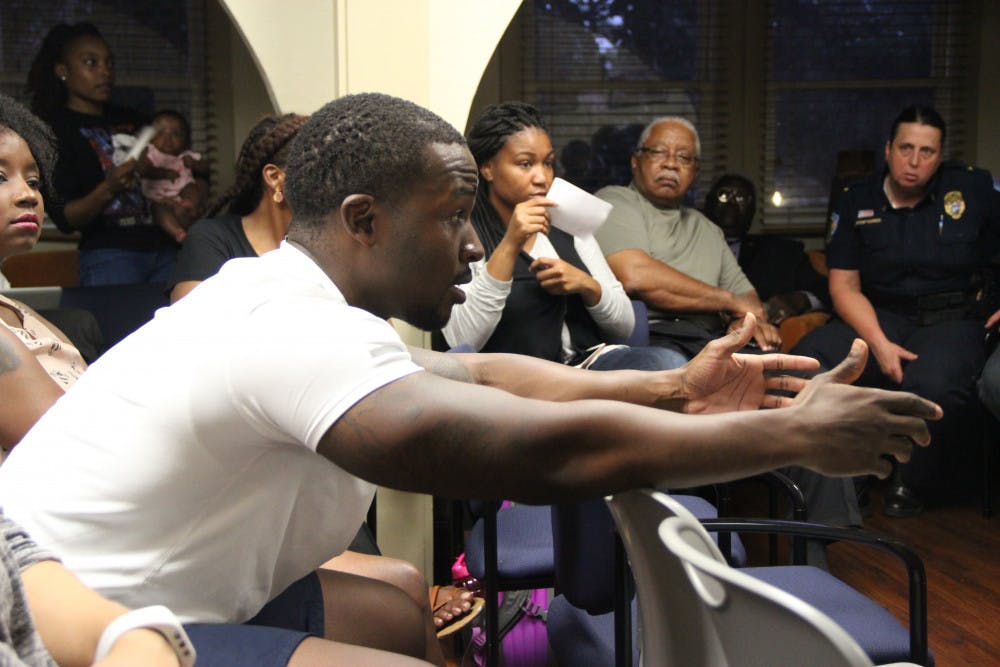Christina Gladney wants change.
“We are in a social war, and I am enraged,” the 28-year-old UF health behavior doctoral student said Thursday night as a crowd gathered to discuss the Black Lives Matter movement and recent events in the black community. “I’m tired of the dialogue.”
About 100 people gathered at the Institute of Black Culture for an event hosted by the UF Black Graduate Student Organization at its monthly meeting. Recent shootings across the country had Gainesville residents demanding answers from a panel.
With shaking hands and tears in her eyes, Gladney described what it was like to be a black woman pulled over by police.
“How insulting it is,” she said, her voice trembling with anger, “to have a white man pull me over, in my blackness, and won’t give me my license until I look in his blue eyes.”
One of the panelists, UF sociology doctoral student Micah E. Johnson, said the thought of the U.S. moving past race is a misunderstanding of the country’s culture.
“Racism is an American tradition,” the 31-year-old said.
When discussing the recent Milwaukee, Wisconsin shooting, Johnson said for there to be racism, there has to be some element of greater control.
UF history professor Ibram Kendi, another panelist, agreed.
“You can’t be racist without power,” she said.
Kendi, a history professor, defined racism as any idea that suggests one group is superior or inferior to another. He said leaders will listen to what people have to say, but they will ultimately pick and choose what it is they want to change.
“People in power always like when the powerless engage in dialogue,” he said.
University Police Chief Linda Stump-Kurnick disagreed.
“I think it’s making a good difference,” she said. “Agree or disagree, we’re not going to come together without dialogue.”
Stump-Kurnick then told a story about when she felt fear when being pulled over. She said she placed her hands on the wheel and told the officer about the gun in her car. The officer recoiled and placed her hand on her weapon.
Raja Rahim, 26, said she was insulted by Stump-Kurnick’s story. Black men have been killed by officers for doing the same thing, she said.
“It’s like a slap in the face to hear the story of what you walked away from,” the UF history doctoral student said.
Gladney said nothing will change until society begins to consider people over policies and programs.
“What’s beautiful to me,” she said, “is when a perpetrator of racism tries to understand his behavior.”






